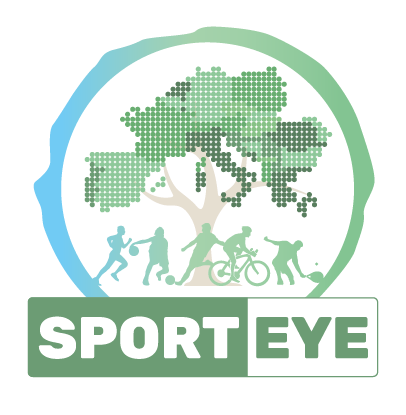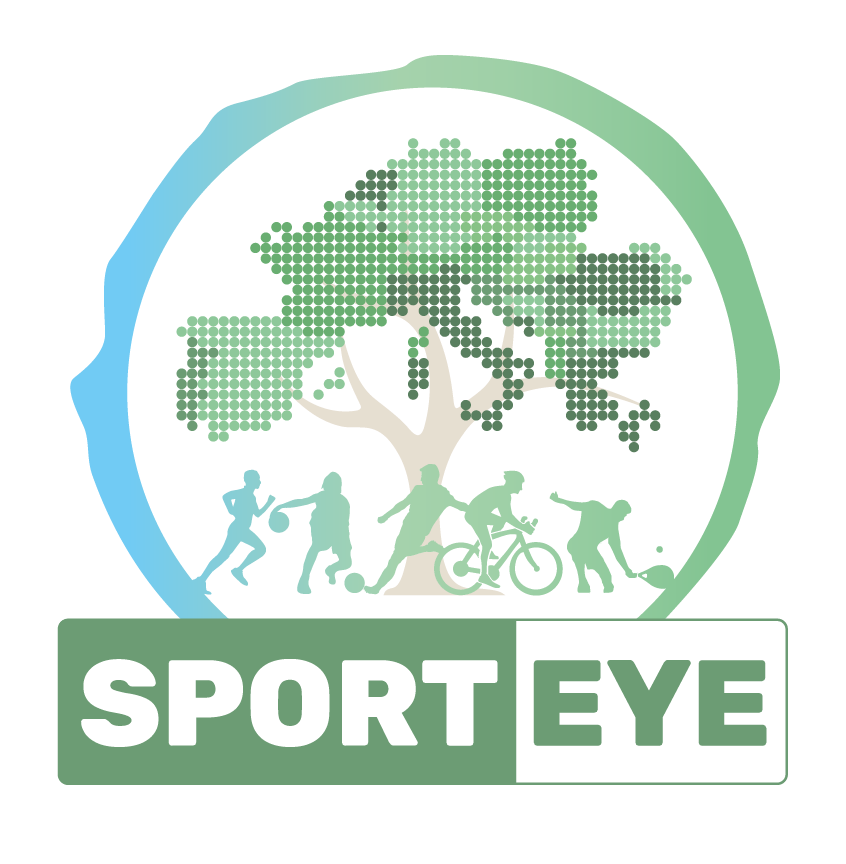
PARTNERS
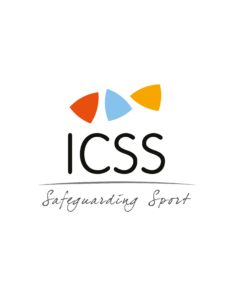
The object ICSS EUROPE is to develop activities, independently and on a non-profit basis, for the protection of sport through tangible efforts to ensure good governance, integrity, the protection of youth as well as protection and security throughout the sport sector, in particular with the aim of:
- Contributing to making sport safe and ethically governed at local, national and global levels, so that its positive values continue to be an inspiration for society and individuals;
- Supporting governments, international bodies, sports organizations, civil society and the sports sector in the development of advanced policies and instruments to safeguard safety, security and integrity in sport with a particular focus on grassroots;
- Increasing specialization, science-based instruments and capacity building, including training and education programs across the sports sector;
- Promoting collective, multisectoral and international actions to safeguard the integrity of sport and prevent violence, with a particular focus on grassroots protection;
- Identifying innovative and pioneering tools to protect sport and those who compete and play sport, in particular the most vulnerable.
ICSS EUROPE is part of the International Centre for Sport Security (ICSS) group and develops programs and activities within the scope of ICSS’s (www.icss.org) global activity.
ICSS EUROPE, in line with ICSS vision and values, has a focus on the protection and education of children and young people through sport. In particular, ICSS EUROPE has been working with key-stakeholders for the establishment of a Charter for Best Practices on Youth Development and Protection in Sport.
The efforts in this field are also specially carried out via the SAVE THE DREAM initiative (http://www.save-the-dream.org/en) within ICSS. Working on a global scale with leading organisations across sectors, Save the Dream implements and promotes initiatives to empower youth through safe access to sport and its educational and social values.
On an international level, Save the Dream works in official cooperation with organisations such as the United Nations Alliance of Civilizations (UNAOC), UNICEF, UNESCO, the UN High Commissioner for Refugees (UNHCR), the International Olympic Truce Center (IOTC) and with a vast network of stakeholders from civil society and sport
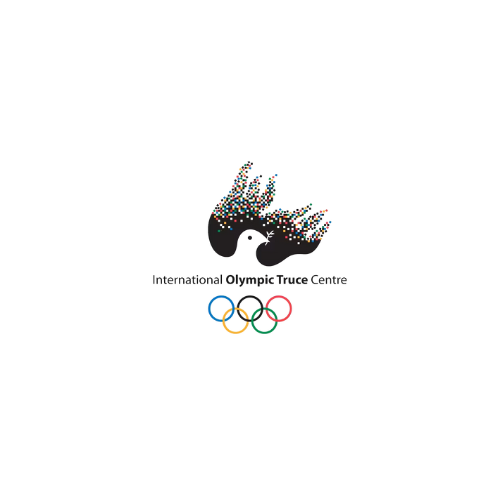
The International Olympic Truce Centre was established in July 2000 as a joint initiative of Greece and the International Olympic Committee, turning the commitment of the Olympic Movement to promote its peaceful principles into concrete action. The International Olympic Truce Centre’s mission is to promote the Olympic Ideals, to serve peace and friendship, and to cultivate international understanding. In particular, to uphold the observance of the Olympic Truce, calling for all hostilities to cease during the Olympic Games and beyond, and to mobilize the youth worldwide in the cause of Peace.
During the first years, the International Olympic Truce Centre’s absolute priority was that the Truce is respected during all Olympic Games. Since 2010, the Centre’s activities have expanded into the field of education. Most of the emphasis is put in educating the youth with the use of the power of sport, so that the Olympic Ideals can take root and flourish. It is the use of sport as a tool to instill the Olympic Values that can help the young generation gradually build a Culture of Peace.The Centre has also developed «Hestia FC», the first football team in Greece for refugee women with less opportunities. Through this programme, sport is used as a tool for protection, empowerment, and social inclusion. Additionally, since 2019, the IOTC activities have expanded in the field of Erasmus+ Sport Projects, co-funded by the European Commission. The Centre’s wider and long-term objective is the creation and continuous promotion of the adoption of a Culture of Peace, which respects human rights.
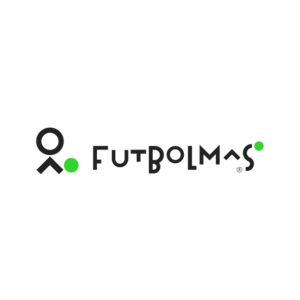
Fútbol Más is an international NGO that was founded in 2007 in Chile. It currently employs headquarters and projects in 11 countries across 3 continents. In Spain, Fútbol Más emerged in 2020 with the aim of promoting the physical and emotional well-being, education and inclusion of children, young people and their families. Based on sport and games, we work through our own socio-sporting methodology, that is based on the theory of resilience, and is adapted and applied to different context.
In order to materialise this positive-focused philosophy, Fútbol Más has created the Green Card. The Green Card is a pedagogical tool and philosophy, which does not expel, punish, or threaten, but rewards and promotes prosocial behaviours in children, youngsters and adults in order to collaborate in the construction of better citizens and happier communities.
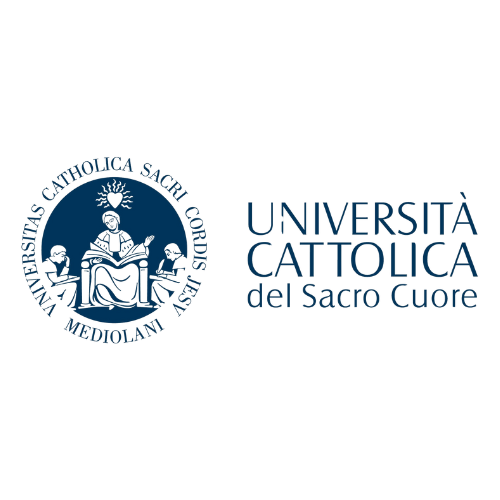
Founded in 1921 in Milan, Università Cattolica del Sacro Cuore is the only university in Italy operating on a national scale. The university is both a lively community and a research hub, where students are urged towards constant and intense participation in academic life by taking advantage of the numerous opportunities for growth that the institution offers every day. It has 4 campuses in Milan, Brescia, Piacenza-Cremona and Rome and it can count on 12 faculties, more than 44.000 students and 1300 teaching staff members.
Research activity draws on 39 departments, 93 research centres and 21 doctoral programs, and is aimed towards the study and understanding of issues crucial to life and society: new frontiers in economics and bioethics, the recovery of cultural assets, changes in the field of law, family trends, the phenomenon of the mass media, the development of political systems, the aims of medicine, technological applications of mathematics and physics, and the most recent discoveries in environmental research.
In particular, UCSC developed several academic programs concerning sport: a degree in Physical education and Sport sciences, a “Dual career program” for UCSC students/athletes as well as a PhD program in Exercise and Sport sciences. Sport is also at the core of research activities carried out by the Research Unit “Psychology, Sport and Society” (since 2016) and by the Graduate School in Psychology “Agostino Gemelli”’s special section in Sport. Using a psycho-social approach, these activities focus on topics such as athlete career and identity, talent development and management, coach and manager education, integrity in sport and sport as a tool for social inclusion.

Our conviction: Sport is a tool and a solution to societal challenges.
Our mission: Design and implement education and inclusion projects for vulnerable children and youth, using sports games as a pedagogical tool.
Our deployment model: Co-create, model, test and then disseminate educational content through our open access media library, by training professionals in the the field of education, and by following-up on the implementation of the sessions to ensure quality is respected.
Themes we work on: Organized around two priorities of living together and health, they deal with access and retention in school, gender equality, social cohesion, inter-ethnic dialogue, health prevention (eating well, moving well, sleeping well, using screens well), changing the way we look at disability… and many more!
Our specific contribution to the SPORTEYE project : PLAY international will lead the design of educational contents to works into the sport clubs to raise awareness and implement environmental actions within and around clubs.
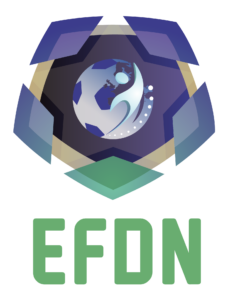
The European Football for Development Network (EFDN) consists of professional football clubs, leagues, and FAs who are committed to their communities and social responsibilities with a passion to cooperate and engage on a European level. The network aims to promote the power of football as a tool for social development and support the efforts of network members in their initiatives to use football in accessing various target groups in their communities.
EFDN is an influential platform and voice within European football. EFDN has access to more than 150 football clubs in 32 countries via its international conferences and online learning platform. It has extensive partnerships with a wide range of national and international governing sports organisations and other institutions. During the #Morethanfootball Action Weeks EFDN reached more than 41 million people, thus raising awareness for the Pan-European programs and CSR works of clubs. This impact can be used for the communication of all EFDN programs to highlight the work EFDN and its partners are doing.

Real Betis Balompié, as part of its Corporate Social Responsibility, has positioned itself as one of the clubs most committed to the environment in the Spanish LaLiga and in the world, wanting to be green not only in the colours of its crest, but in all the values of the entity.
The Club decided to take a decisive step with the creation of Forever Green, a sustainability platform that harnesses the power of sport to protect the planet and to be a loudspeaker for those companies and organisations that want to show the world what they are doing for the environment. It was one of the best actions of last season when Betis showed its commitment against the climate crisis with a special Forever Green match, the first match dedicated to sustainability in LaLiga. The Real Betis-Athletic Club match became the first match with the objective of protecting the environment, through different actions on and around the matchday. Real Betis and their fans avoided the emission of more than 900 tons of CO2 impact to the atmosphere in this match.
The green and white entity celebrated its tenth anniversary consolidating itself as a key player in its environment to overcome the effects of the pandemic and the most crucial challenges of society, turning Real Betis into one of the most supportive football clubs in LaLiga.
The Foundation, in charge of channelling and executing the Corporate Social Responsibility of Real Betis, helped 21,503 people last season thanks to the implementation of 48 of its own projects, the involvement in 42 projects of other entities, the support to 186 organisations and an executed budget of 915,519 euros. These numbers have been achieved through the work in the five main areas of action of the Green and Whites’ club: Social Area, Cultural and Historical Heritage Area, Former Players’ Area, Sports Area and Forever Green.
If there is one thing that has characterised the Real Betis Foundation in recent years and which it has reinforced over the past season, it has been its capacity to adapt to the emerging needs of its environment. Another of last season’s premieres, which has become a hallmark of the Club and the Foundation, was the Fichaje Estrella, the project framed within the Health Programme and which was created to give hope to children who are going through a process of serious illness with Alba Fernández as the first protagonist.
During its tenth year, the Foundation continued to grow and put Seville on the map, taking part in projects financed by the European Union such as SIDFOOT, Walking Football, Sustainability Scoring and of course in matches of the heroes of Real Betis Genuine.
